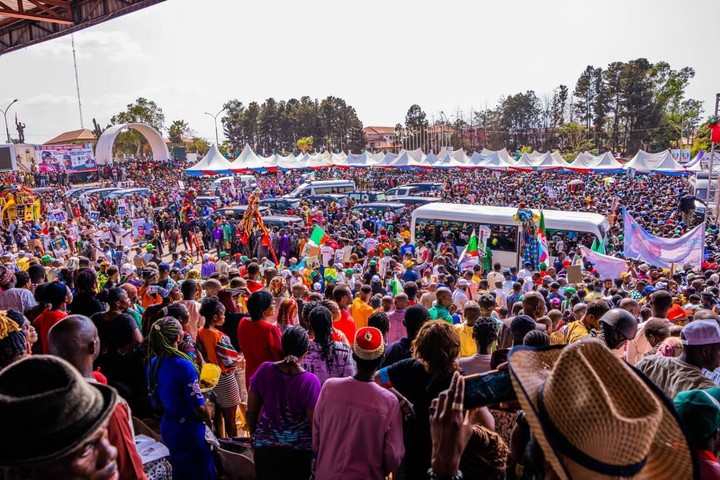Economy
7.1 million more Nigerians will fall into poverty if there is no compensation for the rising inflation

The World Bank recently issued a concerning report about the impact of inflation on Nigeria’s population. According to the report released on Thursday, an estimated 7.1 million more Nigerians will fall into poverty if there is no compensation for the rising inflation. Currently, the country’s social protection programs only cover a mere 19 percent of the population.
To address this pressing issue, the World Bank emphasized the urgent need for a social compact that includes temporary cash transfers to support poor and vulnerable households during these challenging times. The report urged the Nigerian government to invest in a robust social protection system capable of providing timely and targeted assistance to households facing financial shocks, such as the recent increase in PMS (Petrol) prices due to subsidy removal.
Presently, Nigeria allocates only 0.7 percent of its GDP to social safety nets, leaving a significant portion of the population without adequate support. The World Bank stressed the importance of increasing this investment to alleviate poverty and to benefit the nation’s human capital, education outcomes, and overall health.
In addition to social protection measures, the World Bank provided macro-fiscal policy recommendations for the next six months to seize opportunities and promote economic stability. To sustain and deepen FX (Foreign Exchange) policy reform, the World Bank advised removing FX restrictions for the list of 43 items, enhancing communication, and ensuring clarity about the new FX policy with a focus on a unified, market-reflective, transparently-determined rate.
To combat inflation, Nigeria was advised to continue reducing subsidised CBN (Central Bank of Nigeria) lending to medium and large firms, put an end to government borrowing from the Central Bank, and replace import and FX restrictions with tariffs that align with the ECOWAS Common External Tariff.
Regarding the PMS subsidy removal, the World Bank recommended maintaining deregulated prices, promoting fair competition, and taking measures to curb commercial malpractice to ensure that efficiency gains are passed on to consumers.
Another important aspect addressed was tax administration improvement to ensure the effective collection of newly introduced excises on telecommunication, single-use plastics, and high-polluting vehicles. The report emphasized adopting a data-driven approach to tax audits and suggested linking residential property with personal income tax returns, as well as introducing a simple turnover tax on SMEs at the state level instead of various existing fees and levies.
The World Bank’s report highlights the urgent need for Nigeria to implement comprehensive reforms and invest in its social protection system to mitigate the impact of inflation on vulnerable populations and promote sustainable economic growth.




